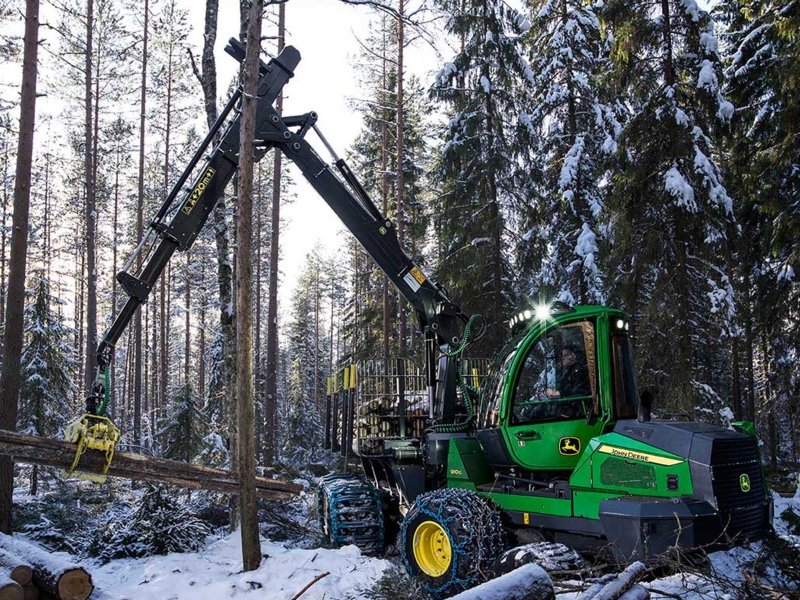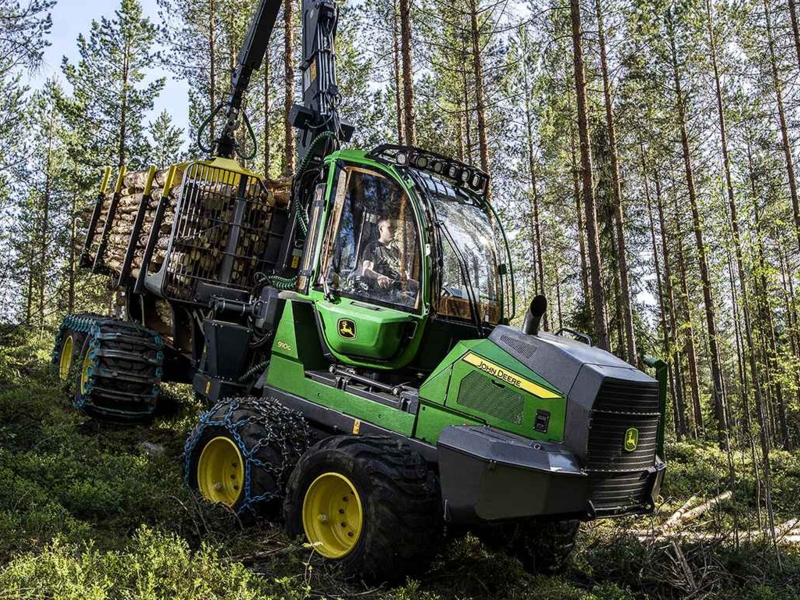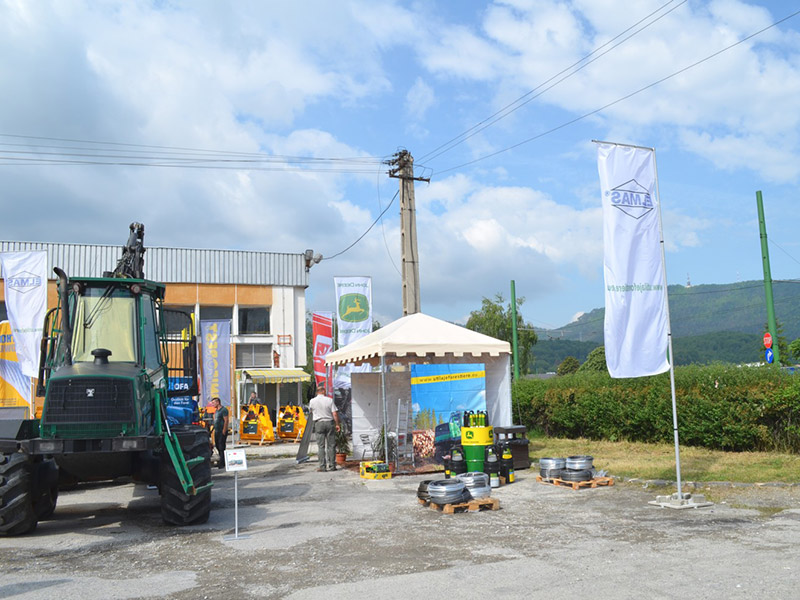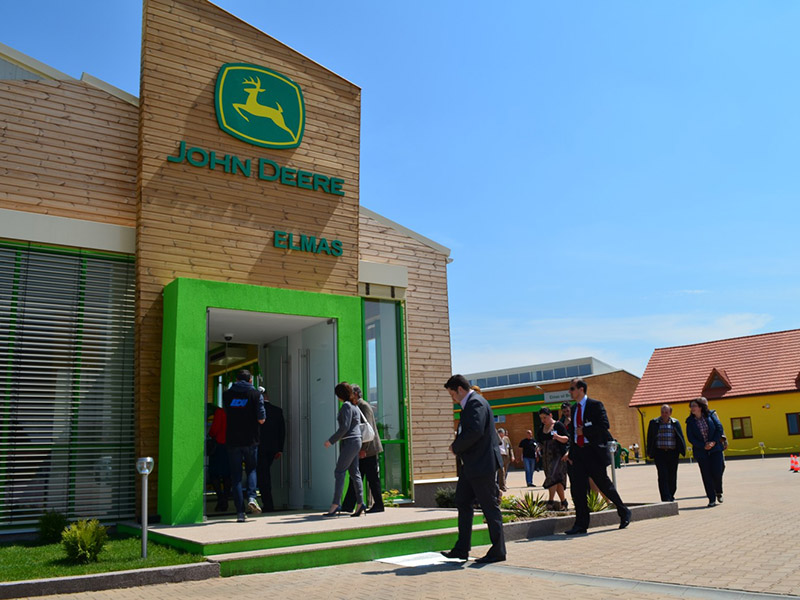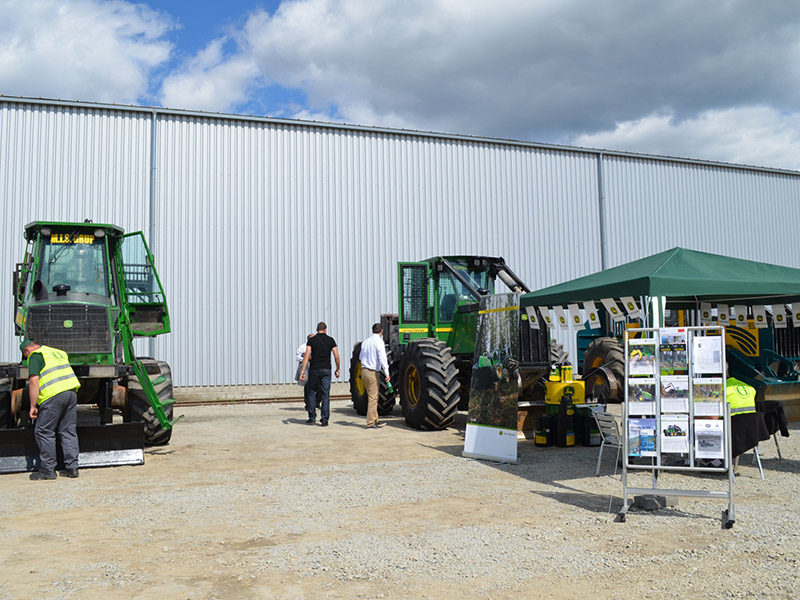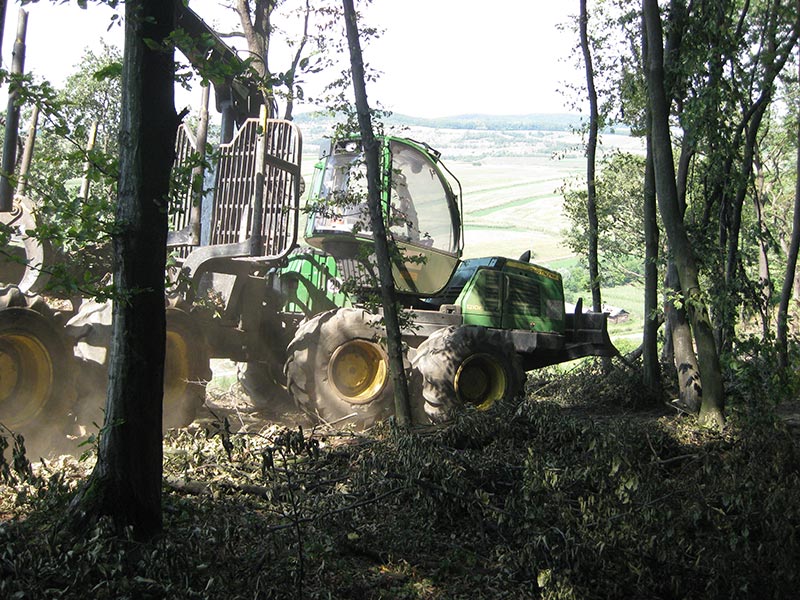Forwarders 910 G
Designed for thinning, the smallest G-Series forwarder with a boom control proper to the John Deere quality, is now available with CF5 crane and can now approach serious logs as well: exact and fast, characterized trough optimum weight-power ratio generates ideal fuel consumption rates in the correct applications.
Features and specifications:
ENGINE
Power 118 kW (158 hp) @ 1,900 rpm
Torque 650 Nm @1,400-1,600 rpm
Fuel Tank 150 L
Diesel Exhaust Fluid (DEF) Tank (usable volume) 13 L
STEERING
Proportional steering with electrical joystick
Turning Angle ± 44 0
HYDRAULICS
Pump Capacity 120 cm
Operating Pressure 24 Mpa
Hydraulic Tank 150 L
ELECTRIC SYSTEM
Voltage 24 V
Batteries 2 x 115 Ah
Alternator 150 A
Lights Halogen or LED
BOOM CF1 / CF5
Maximum Reach Lengths CF1: 7.2 / 8.7 / 9.8 m
CF5: 7.2 / 8.5 / 10 m
Gross Lifting Torque 76 / 102 kNm
Slewing Torque 19 / 24 kNm
Slewing Angle 380 deg
Tilt Angle, Forward/Back 6 deg
TIRES
Front Axle 6W: 34 in. / 8W: 22.5 or 24.5 in.
Rear Axle 6W: 24.5 in. / 8W: 22.5 or 24.5 in.
MEASUREMENTS
Length [A] 8655 / 9055 mm
Bogie Center — Middle Joint [B] 1800 mm
Middle Joint — Bogie Center [C] 2600 / 3000 mm
Wheelbase [B + C] 4400 / 4800 mm
Width – 600 Series Tires [F] Min. 2553 mm (22.5 in.) / 2570 mm (24.5 in.)
Width – 700 Series Tires [F] Min. 2703 mm (22.5 in.) / 2780 mm (24.5 in.)
Outer Turning Radius – 700 Tires (short / long frame) 7050 / 7600 mm
Inner Turning Radius – 700 Tires (short / long frame) 3900 / 4300 mm
Transport Height 3670 (22.4 in.) / 3685 (24.5 in.) mm
Ground Clearance [front axle, G] 600 mm (22.5 in.) / 610 mm (24.5 in)
Minimum Machine Weight [with rotating and leveling cabin] 14 700 kg–16 100 kg
Approach Angle 6W: 28 deg. / 8W: 38 deg.
LOAD SPACE OPTIONS
Total Length [D + E]
Short Wheelbase 3700 mm
Long Wheelbase 4100 mm
Load-Space Width [J]
Narrow / Wide 2500 / 2700 mm
Cross-Sectional Area
Narrow / Wide 3.5 m
NEW DESIGN
The 910G forwarder has been designed by BMW Design Works. Special attention has been paid to ease of service: a large panel on the right side of the engine hood can be opened and the upper part can be tilted forward. The fuel tank has been moved to the front and a hydraulic module has been added to the freed space behind the cabin. The hydraulic components in this module are easy to reach for servicing.
PRECISE AND STRONG BOOM
The precision and power of the G-Series forwarders’ boom control is unprecedented. New controllers, simplified CAN busses and streamlined electrical systems bring more power, speed and precision control to the boom.
The updates decrease malfunction sensitivity and accelerate troubleshooting. The number of fuses has been reduced thanks to controllers that recognize overcurrent situations and cut the feed when necessary to protect the equipment.
The optional intelligent boom control of CF5-boom makes forwarder work easier and faster and it improves productivity. Boom control is precise, fast and easy because the operator can focus on controlling the grapple rather than the boom joint movements. In the latest 2.0 version of intelligent boom control, the precision of the grapple control has been improved, especially in long reaches. The software uses information about the grapple position, and the speed of the rotation in long reaches matches that of short reaches.
CONTROL SYSTEMS AND AUTOMATION
The TimberMatic F-16 control system and user interface on G-Series forwarders have been further developed and improved to maintain the forest machine’s operational reliability. The TimberMatic F-16 features a configurable user interface, cruise control and inclination display. The new software version enables Remote Display Access (RDA) via the Internet (either MTG or other modem). RDA enables faster troubleshooting by servicing people and thus improves the machine’s uptime.
Forwarders have three modules: for the cabin, the front frame and the rear frame. TimberMatic’s troubleshooting diagnostics are detailed and illustrative. The CAN bus increases reliability of the electrical system: simple, fewer connections, a dedicated bus for the engine and the base machine.




